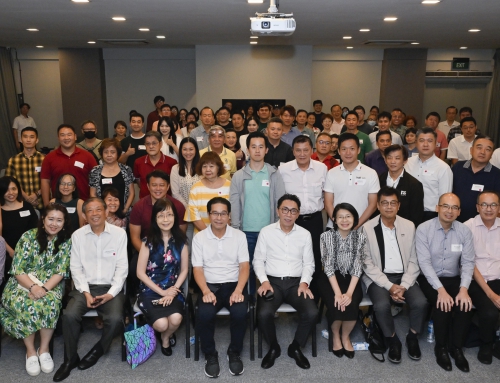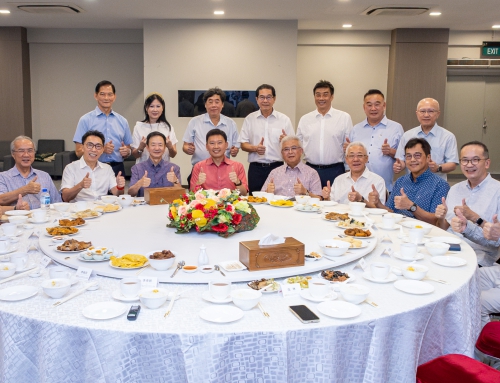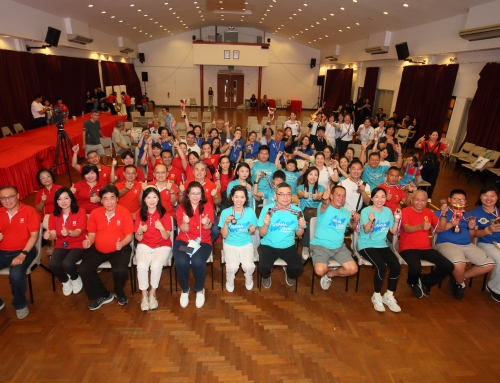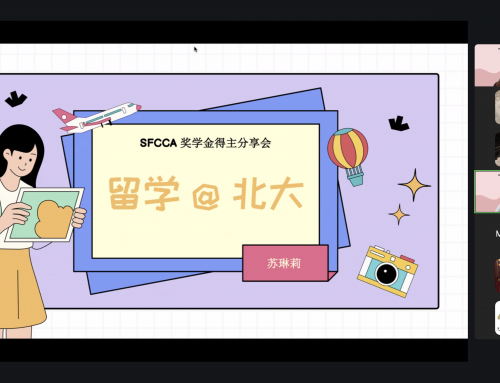The “Dispute Mediation Station” Seminar jointly organised by Singapore Federation of Chinese Clan Associations (SFCCA), Singapore Chinese Chamber of Commerce and Industry (SCCCI), and the Ministry of Home Affairs was held at the Singapore Mediation Centre on 7th November 2009.
More than 20 representatives from SFCCA and SCCCI attended the event and strengthened their dispute resolution skills through practical and interactive learning.
Mediation is a process in which the parties to a dispute voluntarily participate in order to achieve an amicable settlement of the dispute with the assistance of a neutral third party (the mediator). The mediator will coordinate guidance and control the procedures so that all parties do not insist on their respective positions.
The lecturer began the seminar by sharing a dispute case and allowing the participants to role-play different ways of handling the same situation to understand the nature and differences between a judge and a mediator. He emphasised that mediators do not decide anyone is right or wrong, but they are there to help the parties solve their problems. Besides, over 90% of mediation cases are resolved within a day as compared to court proceedings, which saves cost and time and enables the parties to determine the outcome of the mediation.
The lecturer also conducted games to get participants involved in finding out what are the needs of the parties and what “benefits” do they have in common. According to these “benefits”, participants are required to come up with a variety of “solutions” that are beneficial to both parties involved. However, it should be noted that “relationships” may hinder the resolution of a problem, hence it is important to deal with the matter and not with the person whom it is directed to. At the same time, in the mediation process, “communication” is an important factor in achieving mutual understanding and consensus. At the end, a promise can be made to resolve the dispute.
Participants also learnt valuable lessons about mediation by watching videos that portrayed real disputes.





